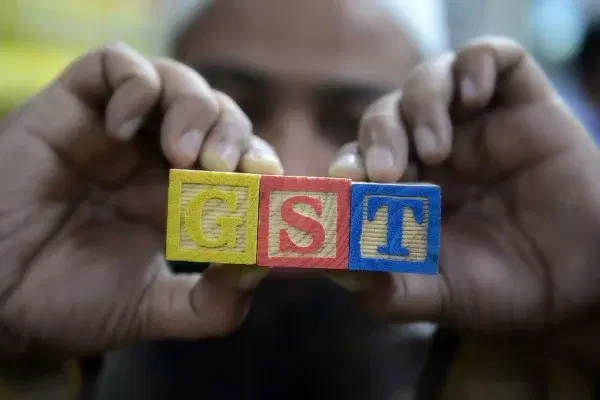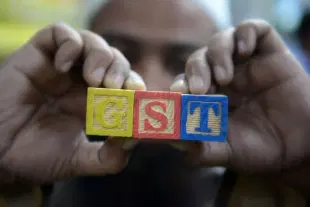Insta
GST Council Likely To Review Existing Tax Structure To Boost Revenue; May Bring Exempted Items Under Tax Net
IANS
Dec 04, 2019, 05:39 PM | Updated 05:39 PM IST
Save & read from anywhere!
Bookmark stories for easy access on any device or the Swarajya app.


A major revamp of goods and services tax structure is on cards when the GST council meets during second fortnight of December to review the existing tax structure and compensation cess rates as part of a larger exercise to shore up revenue.
Unlike the past, when meetings of the council largely focused on rate cuts on host of goods and services to bring about uniformity in the taxation, the forthcoming GST council meeting is expected to focus on bringing exempted items under the tax net while considering changes in tax rates and compensation cess for other products with the prime idea to boost GST revenue and prevent delays in payment of compensation cess to states.
Sources said that GST rates on several finished product may also see an increase as the centre is also looking to correct the inverted duty structure where inputs and raw material attract higher duty than finished products.
As part of efforts to take states on board on its plan to see increase in GST revenue and formalise action plan for the next GST Council meeting Finance Minister Nirmala Sitharaman also met state finance ministers of a few states on Wednesday (4 December). State finance ministers of West Bengal, Delhi, Kerala, Rajasthan and Punjab have been pressing the issue of default of a few months over payment of compensation by the centre.
"There is a level to which GST rate could be cut and still governments would be able to realise comfortable levels of revenue. Due to various changes in GST structure, the effective GST rate is reduced to 18 per cent now from a level of 25 per cent in pre-GST era. There should be some mechanism to see how this gap can be filled," said a tax expert with a leading consultancy firm who did not wish to be named.
As per a recent RBI report, the effective rate of GST rate in India has come down to 11.6 per cent now from 14 per cent in May 2017 reducing government’s revenue by about Rs 2 lakh crore annually. This has meant that collections of states have also fallen and their need for compensation from the centre has increased. As per agreed formula, Centre has assured states that it would make good any losses in case collection growth was less than 14 per cent a year.
The urgency to address the issue of revenue shortfall becoming a reality can be gauged from the fact that GST council secretariat shot off a letter state GST commissioners on 27 November asking for their inputs on a host of issues about measures on compliance as well as rates which would help in augmenting revenue. The inputs have been sought by 6 December.
The letter from GST Council has also brought out the grim situation about compensation cess. Though the requirements of cess has increased, the collections have been unable to meet the full demand. This has led to delays in payment of compensation to a few dates, a fact that has been highlighted by state finance ministers.
Though the council would take a view on the level of cess and whether it would need an increase to meet the shortfall, it is expected that any increase in GST revenue would reduce the need for compensation.
Sources said that barring luxuries and a few other demerit items, levy of compensation cess on other items may also be considered by the council. It may also look at raising the cess on a few products. If this happens in case of automobile, it would be further bad news for the sector already struggling to maintain sales.
(This story has been published from a wire agency feed without modifications to the text. Only the headline has been changed.)





